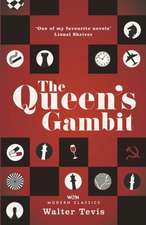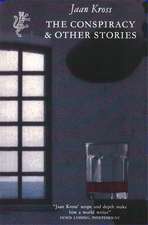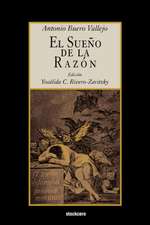The Cider House Rules
Autor John Irvingen Limba Engleză Paperback – iul 1986
Homer Wells' odyssey begins among the apple orchards of rural Maine. As the oldest unadopted child at St Cloud's orphanage, he strikes up a profound and unusual friendship with Wilbur Larch, the orphanage's founder - a man of rare compassion and an addiction to ether. What he learns from Wilbur takes him from his early apprenticeship in the orphanage surgery, to an adult life running a cider-making factory and a strange relationship with the wife of his closest friend...
Toate formatele și edițiile
| Toate formatele și edițiile | Preț | Express |
|---|---|---|
| Paperback (2) | 63.70 lei 21-33 zile | +41.98 lei 7-13 zile |
| Transworld Publishers Ltd – iul 1986 | 63.70 lei 21-33 zile | +41.98 lei 7-13 zile |
| BALLANTINE BOOKS – 31 mai 1997 | 113.45 lei 3-5 săpt. |
Preț: 63.70 lei
Preț vechi: 85.01 lei
-25% Nou
Puncte Express: 96
Preț estimativ în valută:
12.19€ • 13.16$ • 10.22£
12.19€ • 13.16$ • 10.22£
Carte disponibilă
Livrare economică 28 martie-09 aprilie
Livrare express 14-20 martie pentru 51.97 lei
Preluare comenzi: 021 569.72.76
Specificații
ISBN-13: 9780552992046
ISBN-10: 0552992046
Pagini: 703
Dimensiuni: 126 x 195 x 40 mm
Greutate: 0.5 kg
Ediția:New
Editura: Transworld Publishers Ltd
Colecția Black Swan
Locul publicării:United Kingdom
ISBN-10: 0552992046
Pagini: 703
Dimensiuni: 126 x 195 x 40 mm
Greutate: 0.5 kg
Ediția:New
Editura: Transworld Publishers Ltd
Colecția Black Swan
Locul publicării:United Kingdom
Public țintă
Adult: GeneralNotă biografică
John Irving was born in Exeter, New Hampshire, in 1942, and he once admitted that he was a 'grim' child. Although he excelled in English at school and knew by the time he graduated that he wanted to write novels, it was not until he met a young Southern novelist named John Yount, at the University of New Hampshire, that he received encouragement. 'It was so simple,' he remembers. 'Yount was the first person to point out that anything I did except writing was going to be vaguely unsatisfying.'
The World According to Garp, which won the National Book Award in 1980, was John Irving's fourth novel and his first international bestseller; it also became a George Roy Hill film. Tony Richardson wrote and directed the adaptation for the screen of The Hotel New Hampshire (1984). Irving's novels are now translated into thirty-five foreign languages, and he has had nine international bestsellers. Worldwide, the Irving novel most often called "an American classic" is A Prayer for Owen Meany (1989), the portrayal of an enduring friendship at that time when the Vietnam War had its most divisive effect on the United States.
In 1992, Mr. Irving was inducted into the National Wrestling Hall of Fame in Stillwater, Oklahoma. (He competed as a wrestler for twenty years, until he was thirty-four, and coached the sport until he was forty-seven). In 2000, Irving won the Oscar for Best Adapted Screenplay for The Cider House Rules - a Lasse Hallström film with seven Academy Award nominations. Tod Williams wrote and directed The Door in the Floor, the 2004 film adapted from Mr. Irving's ninth novel, A Widow for One Year. Avenue of Mysteries is John Irving's fourteenth novel.
John Irving has three children and lives in Vermont and Toronto.
The World According to Garp, which won the National Book Award in 1980, was John Irving's fourth novel and his first international bestseller; it also became a George Roy Hill film. Tony Richardson wrote and directed the adaptation for the screen of The Hotel New Hampshire (1984). Irving's novels are now translated into thirty-five foreign languages, and he has had nine international bestsellers. Worldwide, the Irving novel most often called "an American classic" is A Prayer for Owen Meany (1989), the portrayal of an enduring friendship at that time when the Vietnam War had its most divisive effect on the United States.
In 1992, Mr. Irving was inducted into the National Wrestling Hall of Fame in Stillwater, Oklahoma. (He competed as a wrestler for twenty years, until he was thirty-four, and coached the sport until he was forty-seven). In 2000, Irving won the Oscar for Best Adapted Screenplay for The Cider House Rules - a Lasse Hallström film with seven Academy Award nominations. Tod Williams wrote and directed The Door in the Floor, the 2004 film adapted from Mr. Irving's ninth novel, A Widow for One Year. Avenue of Mysteries is John Irving's fourteenth novel.
John Irving has three children and lives in Vermont and Toronto.
Descriere
As the oldest unadopted child at St Cloud's orphanage, Homer Wells strikes up a profound and unusual friendship with Wilbur Larch, the orphanage's founder, a man of rare compassion and an addiction to ether. What he learns from Wilbur takes him from his early apprenticeship in the orphanage surgery, to an adult life running a cider-making factory.
Extras
Chapter One
The Boy Who Belonged to St. Cloud’s
In the hospital of the orphanage-the boys’ division at St. Cloud’s, Maine-two nurses were in charge of naming the new babies and checking that their little penises were healing from the obligatory circumcision. In those days (in 192_), all boys born at St. Cloud’s were circumcised because the orphanage physician had experienced some difficulty in treating uncircumcised soldiers, for this and for that, in World War I. The doctor, who was also the doctor of the boys’ division, was not a religious man; circumcision was not a rite with him-it was a strictly medical act, performed for hygienic reasons. His name was Wilbur Larch, which, except for the scent of ether that always accompanied him, reminded one of the nurses of the tough, durable wood of the coniferous tree of that name. She hated, however, the ridiculous name of Wilbur, and took offense at the silliness of combining a word like Wilbur with something as substantial as a tree.
The other nurse imagined herself to be in love with Dr. Larch, and when it was her turn to name a baby, she frequently named him John Larch, or John Wilbur (her father’s name was John), or Wilbur Walsh (her mother’s maiden name had been Walsh). Despite her love for Dr. Larch, she could not imagine Larch as anything but a last name-and when she thought of him, she did not think of trees at all. For its flexibility as a first or as a last name, she loved the name of Wilbur-and when she tired of her use of John, or was criticized by her colleague for overusing it, she could rarely come up with anything more original than a Robert Larch or a Jack Wilbur (she seemed not to know that Jack was often a nickname for John).
If he had been named by this dull, love-struck nurse, he probably would have been a Larch or a Wilbur of one kind or another; and a John, a Jack, or a Robert-to make matters even duller. Because it was the other nurse’s turn, he was named Homer Wells.
The other nurse’s father was in the business of drilling wells, which was hard, harrowing, honest, precise work-to her thinking her father was composed of these qualities, which lent the word “wells” a certain deep, down-to-earth aura. “Homer” had been the name of one of her family’s umpteen cats.
This other nurse-Nurse Angela, to almost everyone-rarely repeated the names of her babies, whereas poor Nurse Edna had named three John Wilbur Juniors, and two John Larch the Thirds. Nurse Angela knew an inexhaustible number of no-nonsense nouns, which she diligently employed as last names-Maple, Fields, Stone, Hill, Knot, Day, Waters (to list a few)-and a slightly less impressive list of first names borrowed from a family history of many dead but cherished pets (Felix, Fuzzy, Smoky, Sam, Snowy, Joe, Curly, Ed and so forth).
For most of the orphans, of course, these nurse-given names were temporary. The boys’ division had a better record than the girls’ division at placing the orphans in homes when they were babies; too young ever to know the names their good nurses had given them; most of the orphans wouldn’t even remember Nurse Angela or Nurse Edna, the first women in the world to fuss over them. Dr. Larch made it a firm policy that the orphans’ adoptive families not be informed of the names the nurses gave with such zeal. The feeling at St. Cloud’s was that a child, upon leaving the orphanage, should know the thrill of a fresh start-but (especially the boys who were difficult to place and lived at St. Cloud’s the longest) it was hard for Nurse Angela and Nurse Edna, and even for Dr. Larch, not to think of their John Wilburs and John Larches (their Felix Hills, Curly Maples, Joe Knots, Smoky Waterses) as possessing their nurse-given names forever.
The reason Homer Wells kept his name was that he came back to St. Cloud’s so many times, after so many failed foster home, that the orphanage was forced to acknowledge Homer’s intention to make St. Cloud’s his home. It was not easy for anyone to accept, but Nurse Angela and Nurse Edna-and, finally, Dr. Wilbur Larch-were forced to admit that Homer Wells belonged to St. Cloud’s. The determined boy was not put up for adoption anymore.
Nurse Angela, with her love of cats and orphans, once remarked of Homer Wells that the boy must adore the name she gave him because he fought so hard not to lose it.
The Boy Who Belonged to St. Cloud’s
In the hospital of the orphanage-the boys’ division at St. Cloud’s, Maine-two nurses were in charge of naming the new babies and checking that their little penises were healing from the obligatory circumcision. In those days (in 192_), all boys born at St. Cloud’s were circumcised because the orphanage physician had experienced some difficulty in treating uncircumcised soldiers, for this and for that, in World War I. The doctor, who was also the doctor of the boys’ division, was not a religious man; circumcision was not a rite with him-it was a strictly medical act, performed for hygienic reasons. His name was Wilbur Larch, which, except for the scent of ether that always accompanied him, reminded one of the nurses of the tough, durable wood of the coniferous tree of that name. She hated, however, the ridiculous name of Wilbur, and took offense at the silliness of combining a word like Wilbur with something as substantial as a tree.
The other nurse imagined herself to be in love with Dr. Larch, and when it was her turn to name a baby, she frequently named him John Larch, or John Wilbur (her father’s name was John), or Wilbur Walsh (her mother’s maiden name had been Walsh). Despite her love for Dr. Larch, she could not imagine Larch as anything but a last name-and when she thought of him, she did not think of trees at all. For its flexibility as a first or as a last name, she loved the name of Wilbur-and when she tired of her use of John, or was criticized by her colleague for overusing it, she could rarely come up with anything more original than a Robert Larch or a Jack Wilbur (she seemed not to know that Jack was often a nickname for John).
If he had been named by this dull, love-struck nurse, he probably would have been a Larch or a Wilbur of one kind or another; and a John, a Jack, or a Robert-to make matters even duller. Because it was the other nurse’s turn, he was named Homer Wells.
The other nurse’s father was in the business of drilling wells, which was hard, harrowing, honest, precise work-to her thinking her father was composed of these qualities, which lent the word “wells” a certain deep, down-to-earth aura. “Homer” had been the name of one of her family’s umpteen cats.
This other nurse-Nurse Angela, to almost everyone-rarely repeated the names of her babies, whereas poor Nurse Edna had named three John Wilbur Juniors, and two John Larch the Thirds. Nurse Angela knew an inexhaustible number of no-nonsense nouns, which she diligently employed as last names-Maple, Fields, Stone, Hill, Knot, Day, Waters (to list a few)-and a slightly less impressive list of first names borrowed from a family history of many dead but cherished pets (Felix, Fuzzy, Smoky, Sam, Snowy, Joe, Curly, Ed and so forth).
For most of the orphans, of course, these nurse-given names were temporary. The boys’ division had a better record than the girls’ division at placing the orphans in homes when they were babies; too young ever to know the names their good nurses had given them; most of the orphans wouldn’t even remember Nurse Angela or Nurse Edna, the first women in the world to fuss over them. Dr. Larch made it a firm policy that the orphans’ adoptive families not be informed of the names the nurses gave with such zeal. The feeling at St. Cloud’s was that a child, upon leaving the orphanage, should know the thrill of a fresh start-but (especially the boys who were difficult to place and lived at St. Cloud’s the longest) it was hard for Nurse Angela and Nurse Edna, and even for Dr. Larch, not to think of their John Wilburs and John Larches (their Felix Hills, Curly Maples, Joe Knots, Smoky Waterses) as possessing their nurse-given names forever.
The reason Homer Wells kept his name was that he came back to St. Cloud’s so many times, after so many failed foster home, that the orphanage was forced to acknowledge Homer’s intention to make St. Cloud’s his home. It was not easy for anyone to accept, but Nurse Angela and Nurse Edna-and, finally, Dr. Wilbur Larch-were forced to admit that Homer Wells belonged to St. Cloud’s. The determined boy was not put up for adoption anymore.
Nurse Angela, with her love of cats and orphans, once remarked of Homer Wells that the boy must adore the name she gave him because he fought so hard not to lose it.
Recenzii
“[Irving] is among the very best storytellers at work today. At the base of Irving’s own moral concerns is a rare and lasting regard for human kindness.”—Philadelphia Inquirer
“Superb in scope and originality, a novel as good as one could hope to find from any author, anywhere, anytime. Engrossing, moving, thoroughly satisfying.” —Joseph Heller
“An old-fashioned, big-hearted novel . . . with its epic yearning caught in the nineteenth century, somewhere between Trollope and Twain.”—Boston Sunday Globe
“The Cider House Rules is filled with people to love and to feel for. . . . The characters in John Irving’s novel break all the rules, and yet they remain noble and free-spirited.”—Houston Post
“Superb in scope and originality, a novel as good as one could hope to find from any author, anywhere, anytime. Engrossing, moving, thoroughly satisfying.” —Joseph Heller
“An old-fashioned, big-hearted novel . . . with its epic yearning caught in the nineteenth century, somewhere between Trollope and Twain.”—Boston Sunday Globe
“The Cider House Rules is filled with people to love and to feel for. . . . The characters in John Irving’s novel break all the rules, and yet they remain noble and free-spirited.”—Houston Post


















